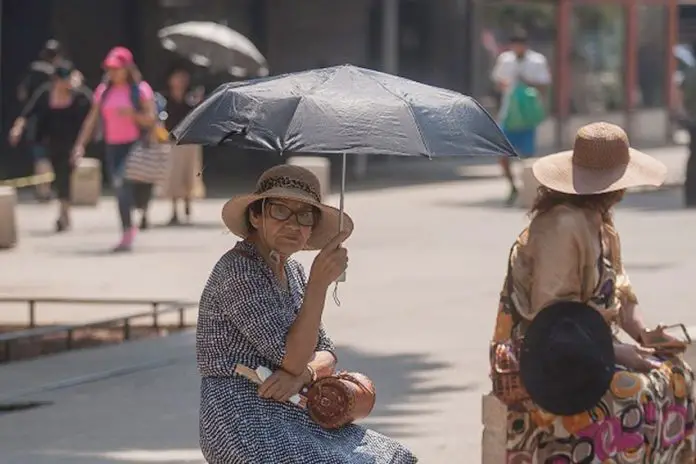High ozone levels worsened already severe contamination in Mexico City yesterday, leading authorities to declare another emergency alert and impose restrictions on the circulation of vehicles.
Air quality in the capital on Tuesday was the worst in five years, according to a report in the newspaper El Universal.
Smoke from fires burning in and around Mexico City and in central and southern states is the primary cause of the contamination but hot and dry conditions with little wind have exacerbated the situation.
The Environmental Commission of the Megalopolis (Came) issued an Extraordinary Environmental Contingency yesterday morning for the Mexico City metropolitan area after measuring extremely high levels of fine particulate matter known as PM2.5.
Later yesterday, Came activated an additional Environmental Contingency due to high levels of ozone in the atmosphere.
“Today, at three in the afternoon, two contaminants combined, contaminants of particles 2.5 and ozone,” Mayor Claudia Sheinbaum said in a video on social media.
“This can cause greater harm to health. So we made the decision to increase the measures of environmental contingency for tomorrow [Wednesday].”
Electric and hybrid cars as well as vehicles that have passed emissions tests and are identified with “0” and “00” holographic stickers are free to use roads in the Mexico City metropolitan area today.
But higher-emission vehicles and private cars with license plates from a different state or a foreign country are not permitted to circulate today between 5:00am and 10:00pm.
Authorities in México state have imposed restrictions on the circulation of vehicles in 16 municipalities of the Valley of Toluca, where an Environmental Contingency has also been declared.
In addition to the vehicular restrictions, Sheinbaum said that roadwork has been suspended and a professional soccer match scheduled for Mexico City today has been postponed.
The mayor explained that restrictions were not imposed on cars as a result of the initial emergency alert because current contingency plans are not activated by high levels of fine particulate matter.
However, federal environmental official Sergio Sánchez told a press conference yesterday that a PM2.5 contingency program will now be established.
While fewer cars on the roads in the capital today will help to prevent a further deterioration of air quality, the Environmental Commission of the Megalopolis said in a statement this morning that there are “unfavorable [climatic] conditions for the dispersion of contaminants.”
At 10:00am today, Came said that air quality in most of the metropolitan area of the capital is still “bad” due to the high presence of fine particulate matter and that wind speeds were just 7 kilometers per hour.
Ciudad Nezahualcóyotl, a municipality just east of the capital in México state, continues to be the most polluted area of the Valley of Mexico, according to the Imeca index.
Source: El Universal (sp)
